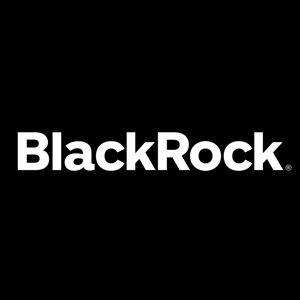
BlackRock
Improving the way that listed companies are run.
In a little over 30 years, BlackRock has grown from an eight-person start-up to the largest investment manager in the world with c$9 Trillion in assets under management. In the beginning it was an active fund manager, an even larger one after the acquisition of Merrill Lynch Investment Management in 2006. After acquiring Barclays Global Investors (BGI) in 2009, BlackRock overtook Vanguard to become the world’s largest. The acquisition of BGI also meant that it instantly became one of the world’s largest passive fund managers, a position that would be enhanced with the launch of iShares Exchange Traded Funds (ETFs) and Index Funds in 2012.
In 2019, they launched BlackRock Retirement Solutions Group. As two thirds of the assets they manage relate to retirement, BlackRock formed this new initiative to “explore innovative solutions to the most pressing retirement challenges”. They offer an array of products aimed at saving and investing for the Second Half – from their ‘LifePath Index Retirement Fund’ which adjusts its risk and asset allocation over time; the ‘MyMap’ range of ‘managed portfolios’ that we mentioned earlier (at annual costs of just 0.17% pa!) and an incredible range of managed funds, ETFs and index funds, including its ‘Screened’ range of funds that allows you to invest in an index but exclude the likes of tobacco or other morally reprehensible industries.
ESG and ethical investing play an important role in BlackRock’s philosophy. They provide investors with details on each fund’s sustainability credentials, involvement in weapons, tobacco, thermal coal and oil sands and how well each fund adheres to the UN Global Compact. Their MyMap range considers a broad spectrum of ESG themes when selecting its investments: climate change, natural resources, pollution and waste, environmental opportunities, human capital, product liability, stakeholder opposition, social opportunities, corporate governance and corporate behaviour.
But one of the most impressive traits about BlackRock is its principle of ‘Investment Stewardship’; using its voting rights and significant influence to hold corporate executives to account and improve the way that listed companies are run.
I had the privilege of a meeting with Larry Fink and his leadership team in their New York headquarters in late 2016, and his determination to engage with the companies that the firm invests in was palpable. BlackRock chalked up 3500 active engagements with the leadership teams of listed companies during 2020 and used its voting rights to vote against a grand total of 5100 company directors.
Larry Fink is a firmer believer of both ’responsible capitalism’ and ‘investing for the long term’ (two subjects I have written extensively about on www.changeandstrategy.com ). Too many organizations have been paying lip service to both of these for too long. Under his leadership, BlackRock is a founding member of the ‘Focusing Capital on the Long Term’ initiative (led by Sarah Williamson, a brilliant ex Wellington partner, with whom I shared a stage at a Sovereign Wealth Fund annual conference in Marrakesh) and an active supporter of Lynn De Rothschilds’ ‘Inclusive Capitalism’ movement. His annual ‘Letters to CEOs’ are simply brilliant – simultaneously chiding and encouraging corporate leaders to build long-term, sustainable businesses that put people first, take climate change seriously and realize that shareholders and executives are only two of the stakeholders that companies need to look after. (The other five are customers, employees, suppliers, partners and the communities in which the company operates, according to my treatise on Responsible Capitalism).